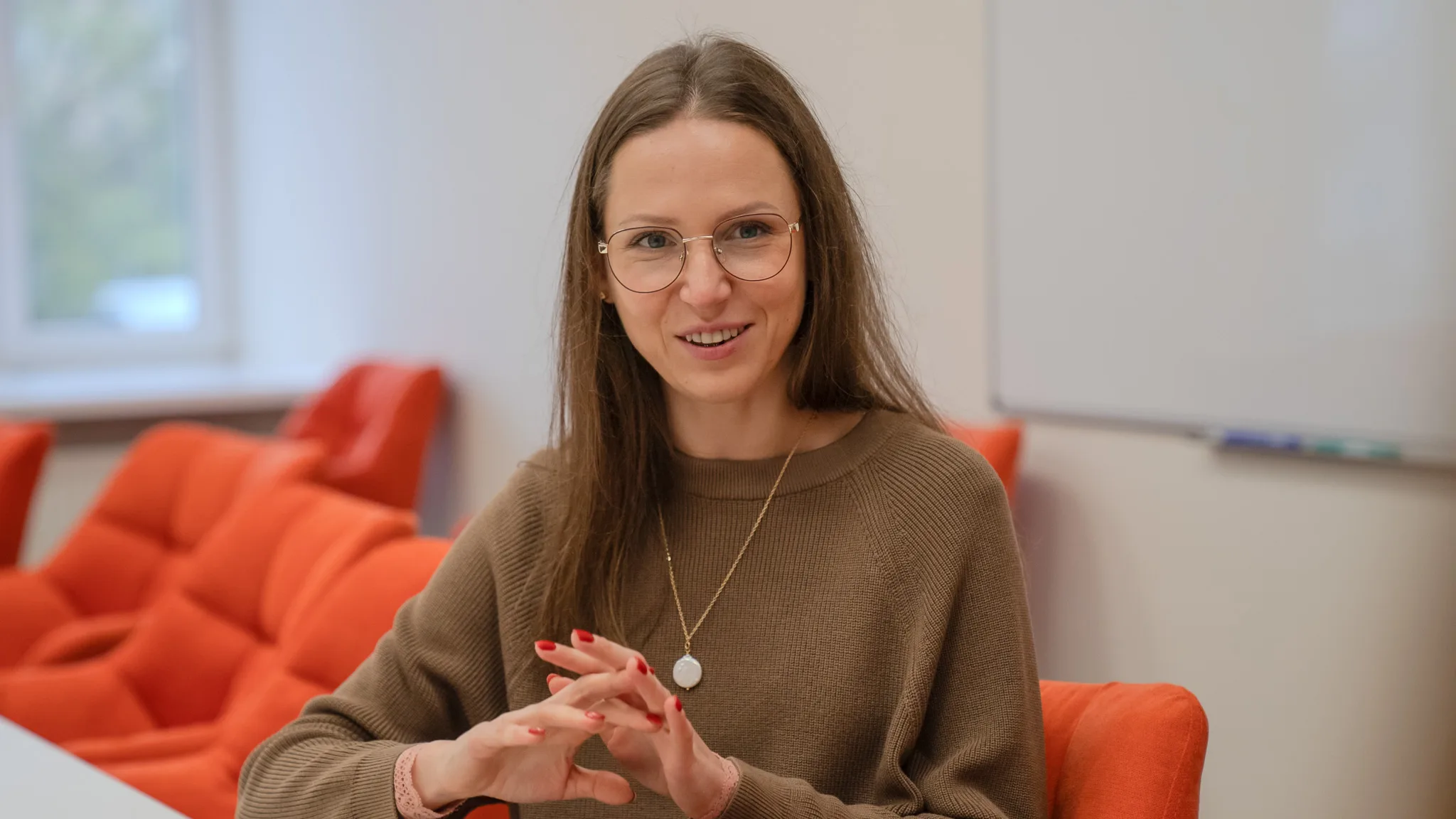“Currently, there are over 25,000 people in Ukraine living with blood cancer, half of whom are children. Yet, there are only around 13,300 registered donors in Ukraine, compared to 10 million in Germany. We have room to grow.” Why are Ukrainians hesitant to become donors, and is it really as painful and frightening as it seems? We talk with Anna Kuzmenko, a communications specialist with the Ukrainian Bone Marrow Donor Registry.
Read also: Greenpeace Ukraine Director Natalia Gozak: “After the war, there should be a country left suitable for the life of future generations”
“Empathy is crucial for my work”
— You mentioned working in real estate for eight years. Could you share how you transitioned to the humanitarian field?
— I’ve worked for various organizations in different fields and did volunteer work, which helped me shift my focus. It was important for me to work for people, not just to help someone make money. I wasn’t specifically looking for the registry; I posted my resume on Work.ua and received an inquiry. Although I knew nothing about donation at the time, every time I talk to patients, I realize I made the right choice.
— What personal qualities do you think are essential in your field?
— Empathy and love for people, particularly in my position as a communications officer. For example, punctuality might be more critical for a courier than empathy.
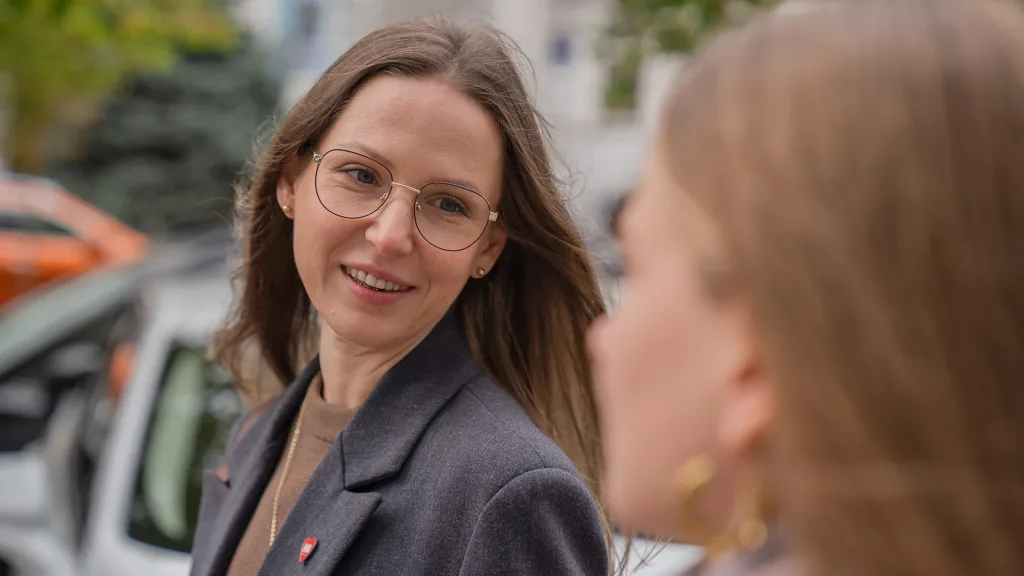
— How do you replenish your emotional energy?
— I have many hobbies, primarily modern postmodern dance, which I describe as “strange dances.” We dance to express what’s in the body—air, water, or emotions. It’s a somatic experience that helps process complex emotions and find resources. Work is also a resource, even though it drains energy. When you see people who have both the country’s war and a personal battle yet face them with dignity, it makes your problems seem smaller.
— What professional accomplishments are you proud of?
— First, we assembled a team of 42 volunteers this year. Second, I initiated and organized a meeting for World Bone Marrow Donor Day on September 21. We collaborated with the Sens bookstore on Khreshchatyk and hosted an event attended by over 50 people without advertising.
Read also: Staffing crisis: where to look for reserves to restart the labour market in Ukraine
“150 transplants today is a success”
— Tell us about the charitable foundation “Blood Donor Registry.” When was it founded, and what is its purpose?
— The registry was founded in 2018, stemming from a personal story. Founders Roman and Yulia Kuts were on a business trip when Yulia became ill. She was diagnosed with aplastic anemia and needed a bone marrow transplant. Luckily, her brother was a match. Siblings are potential donors in about a quarter of cases.
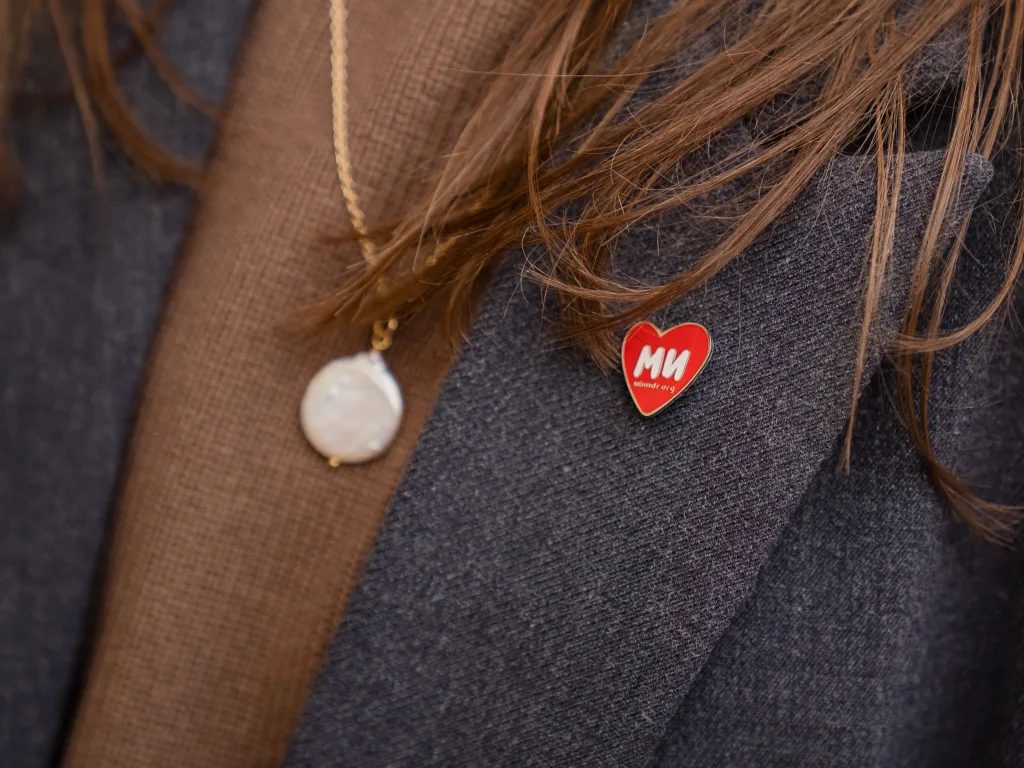
After this, Roman and Yulia decided to start a registry. In 2019, legislative changes enabled a pilot project for non-family bone marrow transplants in Ukraine. This pilot concluded last year and is now a national program.
Imagine that people used to have to travel abroad for transplants, but now they can receive them for free in Ukraine. Moreover, the procedures follow global standards.
By statute, a hospital must complete five successful family donor transplants before it can receive cells from an unrelated donor. Currently, three centers in Ukraine perform these transplants.
Read also: National security and access to information in times of war: how to find a balance?
— How many people are on your team?
— Including couriers and accountants, we are 12.
— What successful cases has your organization achieved?
— Our most successful case is completing 150 transplants.
“A young man waited for his donor for 15 years!”
— How does the cell donation process work?
— First, a person needs to register by ordering a test kit delivered by Nova Poshta. The kit contains three swabs, each to be swiped inside the cheek for 30 seconds. These swabs are then sent to a German lab. After a month, the person receives a letter confirming their registration in the bone marrow donor database. That’s the entire registration process.
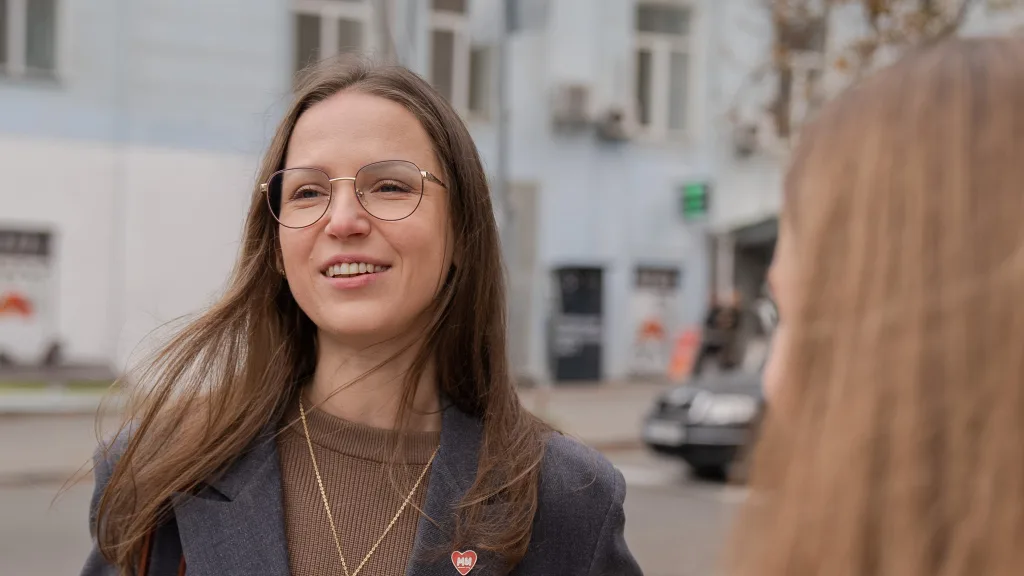
When a patient with a matching DNA appears, we contact the donor. It’s crucial for the donor to be available; for instance, a woman who registered three years ago but is now pregnant cannot be a donor.
If the donor agrees, three stages of examination begin. The person first goes to the CSD lab in their city for a repeat DNA test and blood analysis. Next, a full medical examination is scheduled at Okhmatdyt. I joke that the person receives a free health check-up. If any risks to the donor’s health are identified, the donation will not proceed.
On the second stage, the donor chooses the donation method. In 90% of cases, cells are filtered from peripheral blood, a 3–5-hour procedure that takes only about 5% of the cells, which are fully restored in 2–3 weeks. In 10% of cases, cells are taken from the pelvic bone under general anesthesia.
Read also: The UN: A Mission of Peace and Development
— Is registration for potential donors free?
— Yes, for donors aged 18–35, registration is free, covered by us. For those over 35, we ask them to pay for the DNA test (35 euros), a common practice in registries worldwide. In our registry, people can register up to age 58, and their data is kept until they turn 60. The registry consists of people potentially willing to be donors, but not all will ultimately donate. In Ukraine, it’s one in 1,700; in the UK, it’s one in 800.
— How long does it take on average to find a donor?
— Finding a bone marrow donor is like finding a needle in a haystack with a matching DNA. It takes an average of 2–3 months, though some people may wait longer. One young man waited 15 years. He received his transplant this year, on February 29. It’s a unique case because those needing transplants usually don’t have that much time.
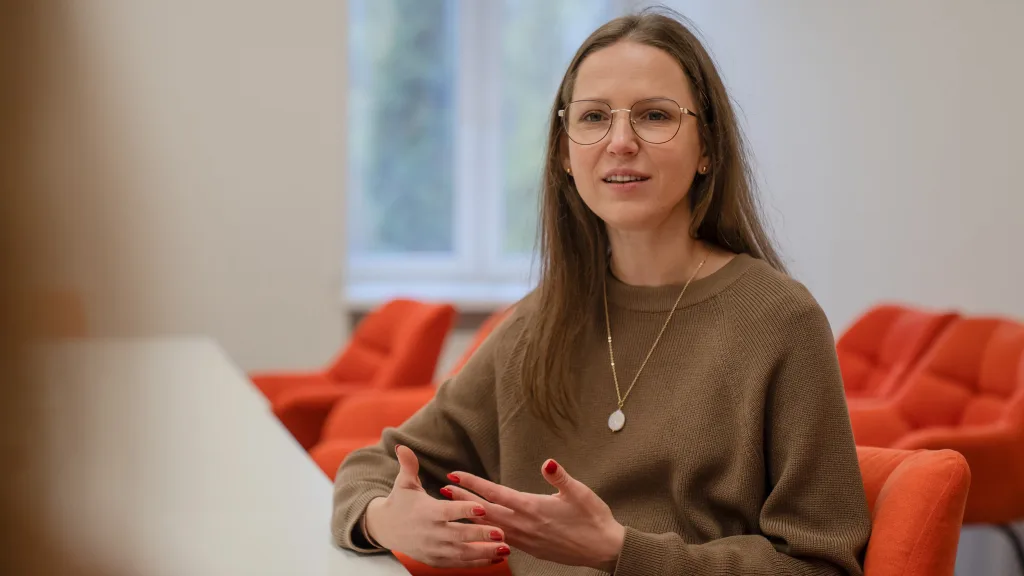
— Do donors often refuse?
— About one in five or six does.
— If someone donates once, can they donate again?
— Yes, they remain in the registry, as bone marrow donation is regenerative.
Why maintain anonymity?
— What other differences are there between bone marrow and blood donation?
— Another difference is that bone marrow donation is entirely anonymous. The donor doesn’t know who they’re donating cells to. After the donation, they might learn the recipient’s age, gender, and country of residence to avoid manipulation or pressure. After two years, they can request a meeting with the recipient.
Bone marrow transplant patients undergo intensive preparation, including high-dose chemotherapy. The first 100 days post-transplant are critical as the patient’s body undergoes a full reset, even changing blood type if the donor’s is different. Anonymity helps prevent situations where patients might place undue blame on the donor, thinking, for instance, that their cells caused complications. We had cases where transplants were done for teenagers, and a mother asked, “Why does he have such a bad temper? Did he get it from the donor?” No, traits like temper don’t transfer, nor do taste preferences, though such myths exist.
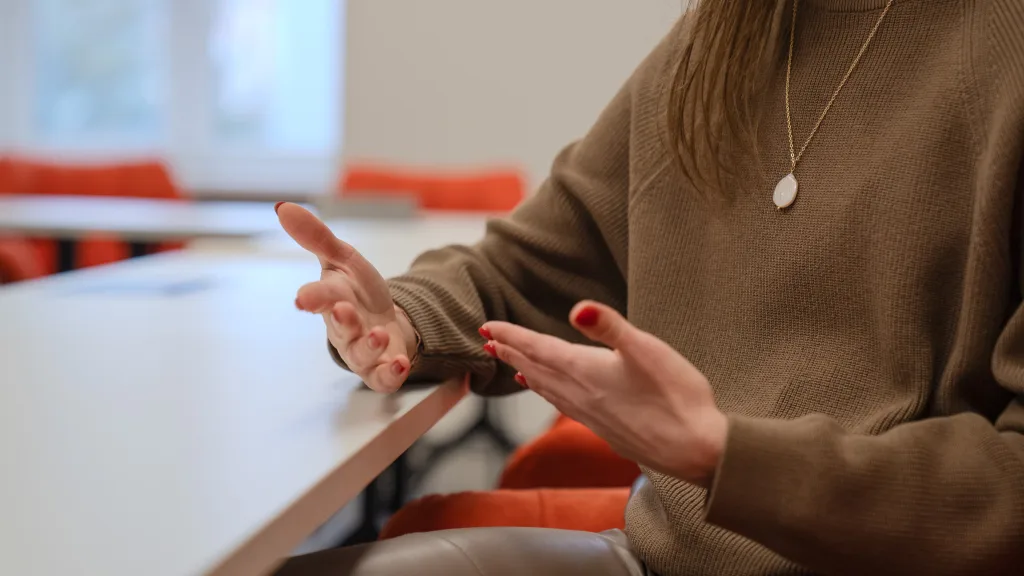
In 2025, the anonymity period of the first Ukrainian donation expires. We’re eagerly anticipating this moment to organize a meeting. The two-year term helps both parties adjust. For a while, patients are too preoccupied with basic needs to have the energy to be grateful to the donor. After two years, they’re generally in a stable physical and psychological state.
Read also: International humanitarian law: protecting humanity in the midst of war
On the challenges of war and a frightened German courier
— What difficulties do you face in your work?
— Myths about donation, shaped by movies and rumors, make people very fearful of the process. They often only become involved when faced with the issue personally. It’s encouraging that the younger generation, ages 20–30, is much more active.
— Did the full-scale war affect your work? Did it bring additional challenges?
— The war had a significant impact. Imagine February 23, 2022. A German courier brought cells to Ukraine and checked into a hotel for the night, expecting to fly home on the 24th. He woke up to a war, with airports closed. The young courier was terrified. The registry helped him reach the Polish border, and he returned home safely. But that moment led all European registries to refuse to transport cells to Ukraine. It’s understandable—they prioritize donor safety and won’t risk cells not reaching the patient.
Nevertheless, by early April 2022, we restored logistics. Previously, European couriers delivered cells directly to Ukrainian hospitals; now they bring them to the Polish border, where they’re handed over to our couriers.
The war also affected donor registration. In 2021, 3,500 donors were registered; in 2022, only 1,600. Almost half as many.
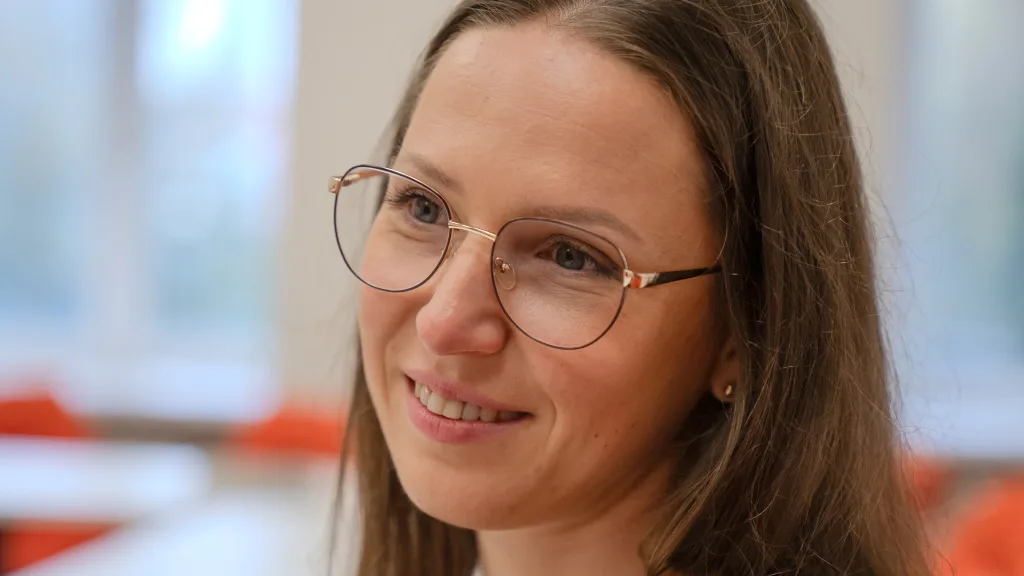
“Universities are a goldmine of donors”
— What are your funding sources?
— We receive strong support from ordinary Ukrainian citizens who understand the importance of the registry’s work and sign up for regular donations on our website or contribute through Monobank cashback. Thanks to cashback, we register 5–70 donors monthly. Large companies also fund us.
— Who are your partners?
— Nova Poshta is a major partner, sending envelopes with test kits to donors for free. The BioPharma company granted us one million hryvnias last year, and we hope to continue this partnership. We also have steady partnerships with the three hospitals performing transplants and the CSD lab. Additionally, we actively collaborate with universities. Universities are a goldmine of donors.
— How can people support your work?
— It’s simple. You can register, make a donation, spread information, or debunk myths about donation.
— What are your future goals?
— We aim to have one million registered donors in Ukraine by 2032, greatly increasing the chances for those in need of transplants. This would also enable us to become donors for foreign patients.
— Finally, two personal questions. What books would you recommend, and who do you admire?
— As for books, I recommend Dopamine Nation by Anna Lembke and works by Carl Jung. Jung is also a person I admire.
Read also: Open doors will save lives: how to make shelters accessible to everyone



